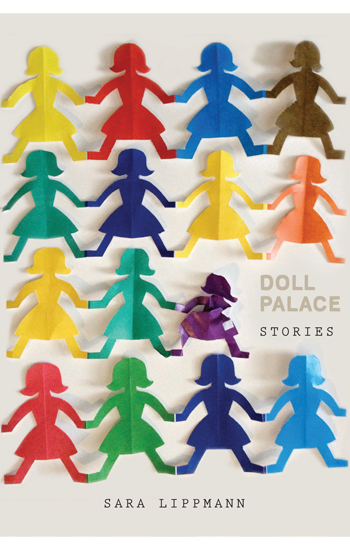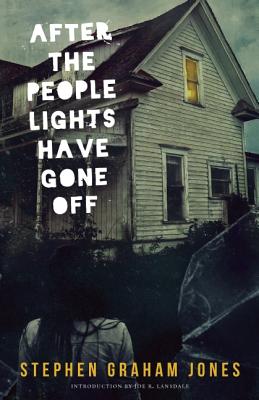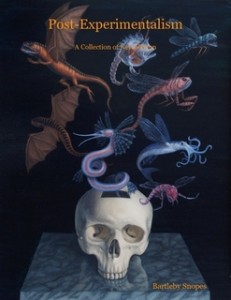Fast Machine
By Elizabeth Ellen
Hobart Short Flight/Long Drive Books; 380 pages; $11.95
Reviewed by Brittany Harmon
Elizabeth Ellen, author of Before You She Was a Pit Bull and Sixteen Miles Outside of Phoenix, captivated me from the very start of Fast Machine, a hard-hitting collection about heartbreak, obsession, and the density of human emotion written with a raw power that even Iggy Pop would admire. Combining her best pieces that have previously appeared in literary magazines such as Hobart, elimae, and Monkeybicycle along with fresh material, Fast Machine contains over ninety stories that range in length from very short to very long. It’s perfect for every kind of postmodern attention span.
Though there is no consistent narrator, the strong female voice that runs throughout the book kept me reading, crying, and laughing all at once. Whether she is clawing at the earth with her bare hands in “The Last American Woman” or being metaphorically detached at the hip from an old boyfriend in “Conjoined,” Ellen can be seen picking at her past—brooding over ex-lovers, poor decisions, and moments of weakness—the way one picks at dead skin. Certain lines like, “I had a bad habit of making my life about the people who were no longer in it” and “Your narcissism no longer feels romantic” humanize this collection in an ironically comforting way, letting the reader know that at least one other person understands the fragile and incredibly painful nature of love and loss. Still other stories like “Winter Haven, Florida, 1984” and “Middle School Sex” travel back to the narrators’ youth, revisiting issues of parental abandonment and confused sexuality. While some may find the bluntness with which Ellen describes her subjects alarming and graphic, it is this rare honesty that makes Fast Machine so enjoyable to read. These stories include just the right amount of sex, anger, movie references, and despair to breathe reality into the often misconstrued perceptions of monogamy, bisexuality, and parenthood.
In this compilation are some excellent pieces of flash fiction like “Ground Rules” and “Sixteen Miles Outside Phoenix.” These short pieces stand out because they contain the same intense, gristly spirit as even the longer and more-involved stories. The explicit and consistent pouring of blood and tears throughout the pages is simultaneously heartrending and consoling, as struggles are faced and overcome not in a hokey Hollywood fashion, but in an agonizing, barely-made-it-through kind of way. One can taste both the bitterness and sadness that comes along with tough breakups and the effects of emotional abuse in “All My Friends Think You’re A Piece of Shit” and “I Will Destroy You.” It is very easy to let stories about relationships fall into clichés and ranting prose, but Ellen handles these situations with a maturity that comes with distance and awareness. She gets to the root of her characters, observing and analyzing their actions and traits with a psychologist’s acuity, exposing motivations that for most people never rise to the plane of consciousness.
Ellen speaks to the core of human interaction and makes us question why we act in certain ways, challenging us to accept the inevitable hurt that accompanies all relationships—parent-child, husband-wife, sister-brother, etc. The fact that she is able to tackle these issues is impressive, but the skill with which she executes these experiences is even more remarkable. She doesn’t tell us she’s angry; she takes an axe to a tree, then an axe to her arm. She doesn’t wallow in sadness; she sits in a basement frantically doing word searches, convincing herself that if she does them all her boyfriend will come back.
There’s also a distinct American rock-and-roll spirit that’s invoked in this collection with images of drinking whiskey in the back of a pick-up truck, flannel clothing, and bison, supported with references to Little House on the Prairie, Johnny Appleseed, and Lynyrd Skynyrd. Her ability to transform everyday happenings into pieces of art shows great expertise. By the end of Fast Machine, I had fallen in love with Ellen – her style, her voice, her picture on the back cover. Anyone who can write about period sex and the breakdown of the family unit with equal proficiency and tenor is a well-accomplished author by my standards. Fast Machine is a must-read for all of those who have crawled through emotional turmoil, been involved in a fucked-up love affair, or cared about someone else so much that they’ve lost themselves in the process. In a world filled with fairy-tales, Nicholas Sparks’ bestsellers, and Taylor Swift’s pop songs, Ellen’s uninhibited writing is refreshing because it’s real. Her words don’t sound forced or overly sentimental; her work has been carefully crafted. Ellen isn’t afraid to hurt her characters or to show how desperate and lonely we all are.




